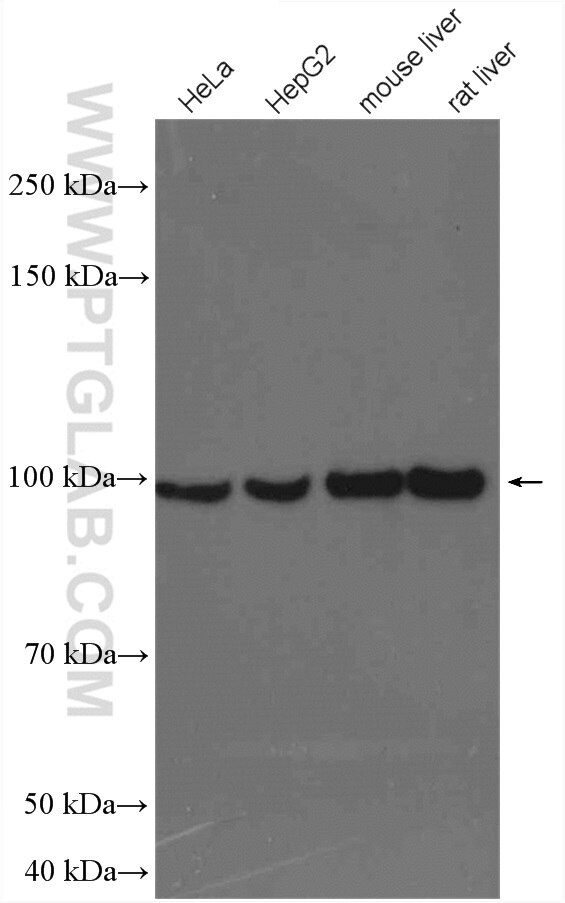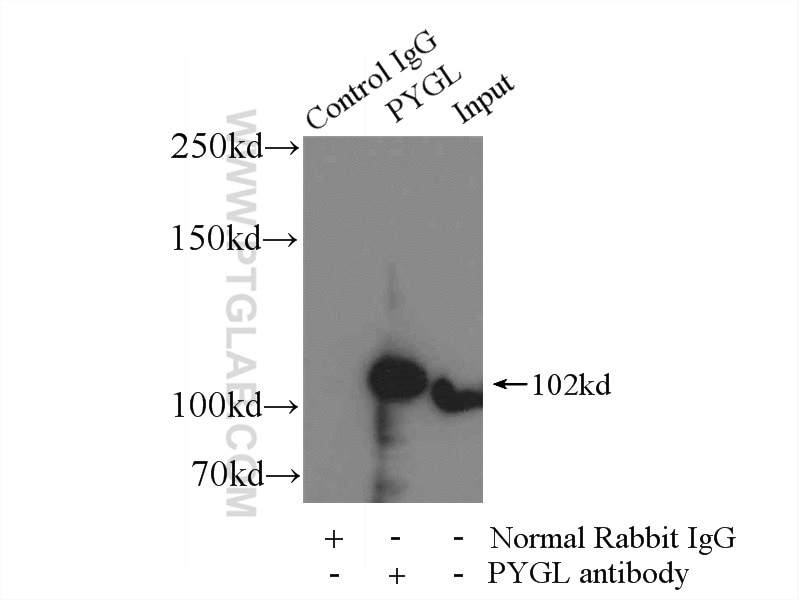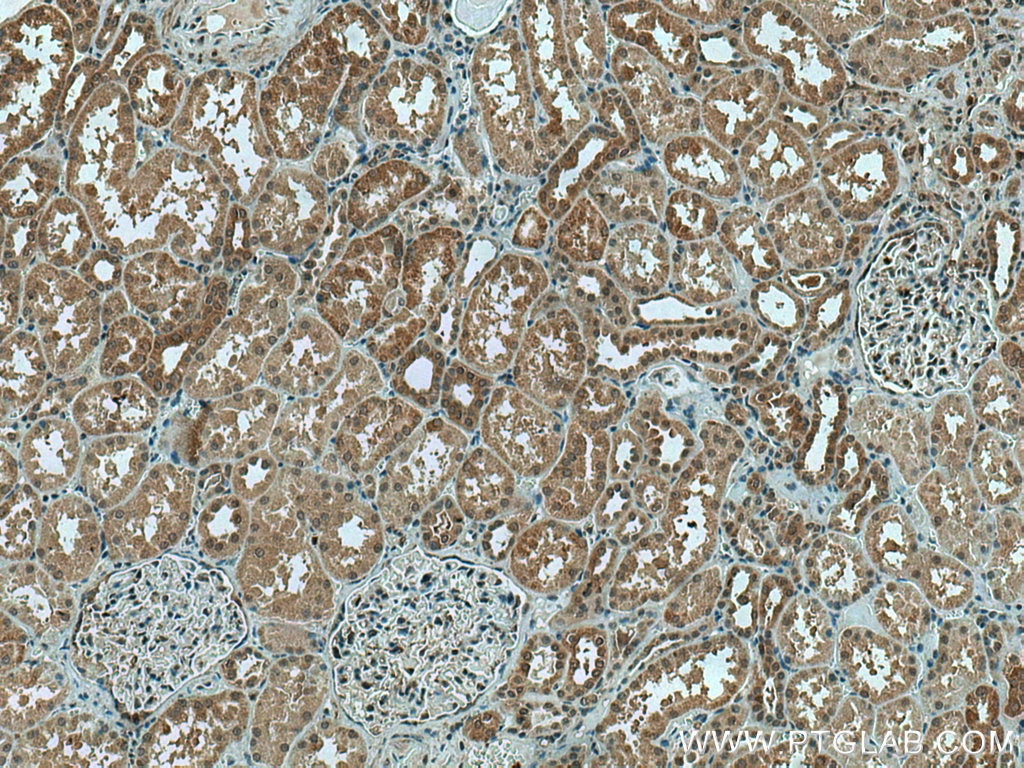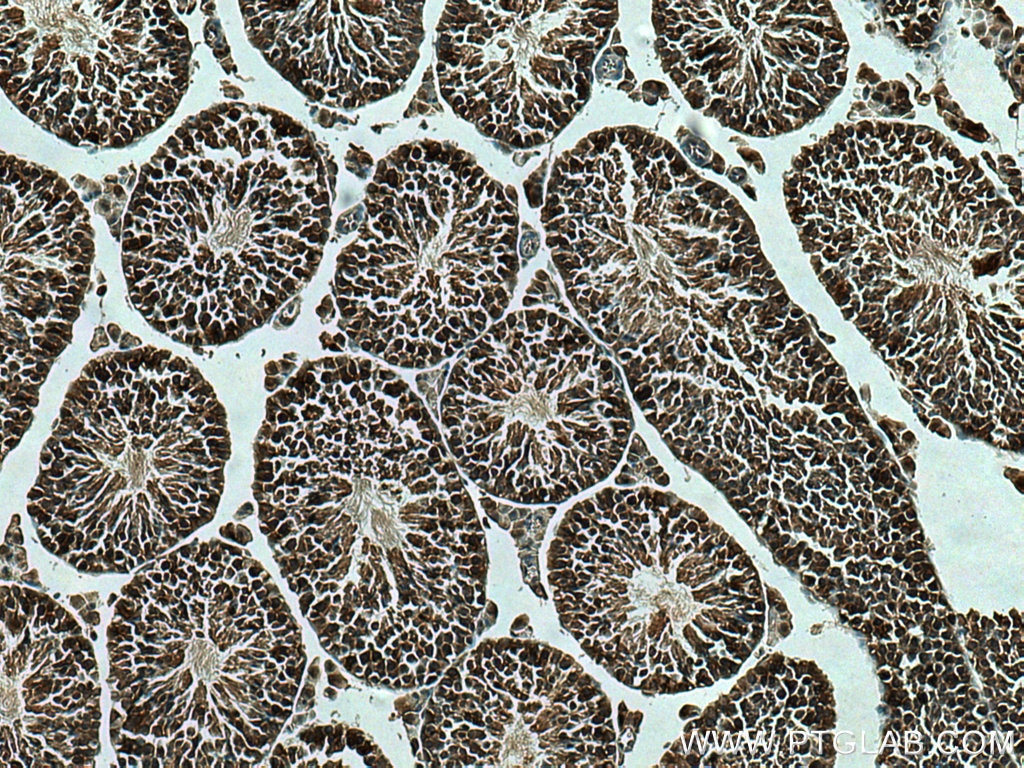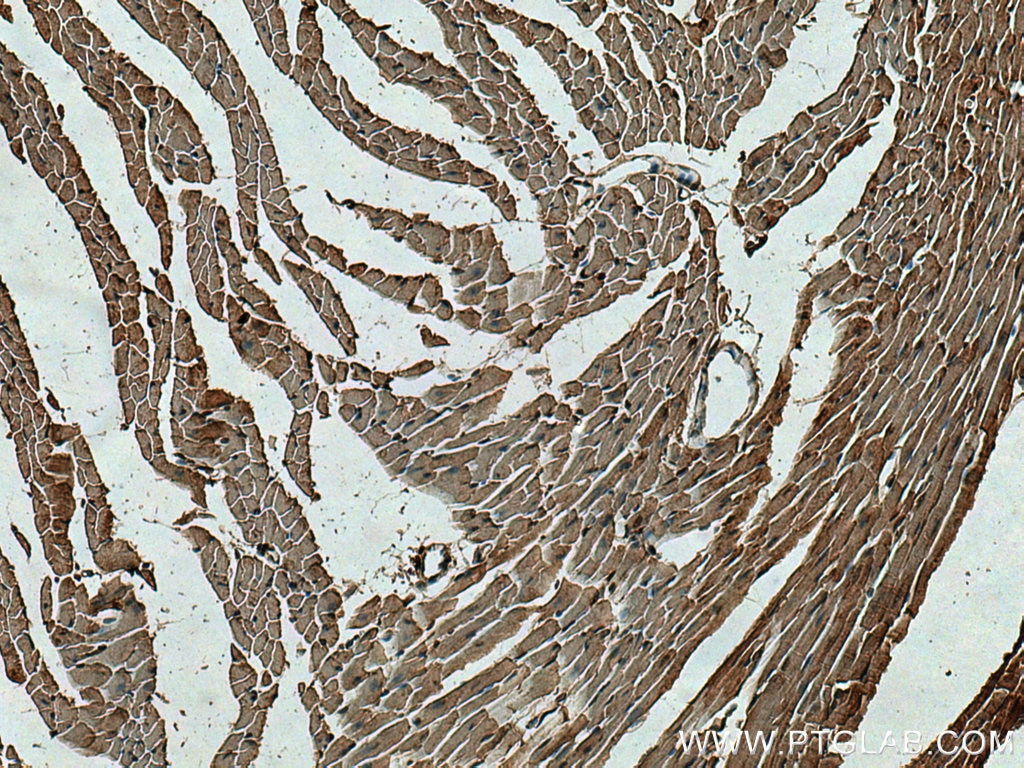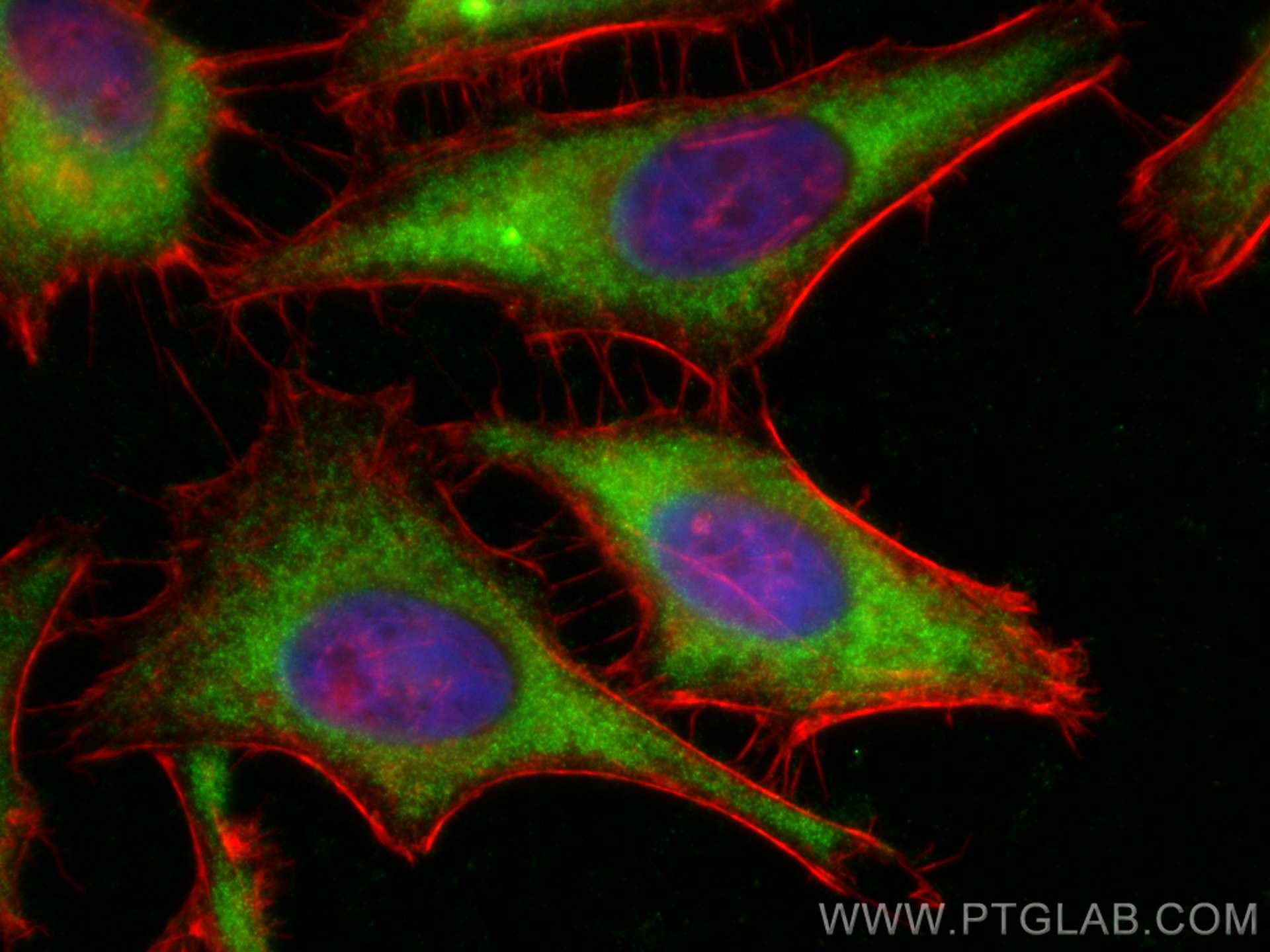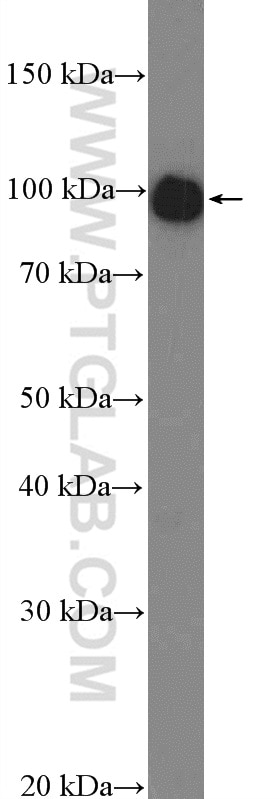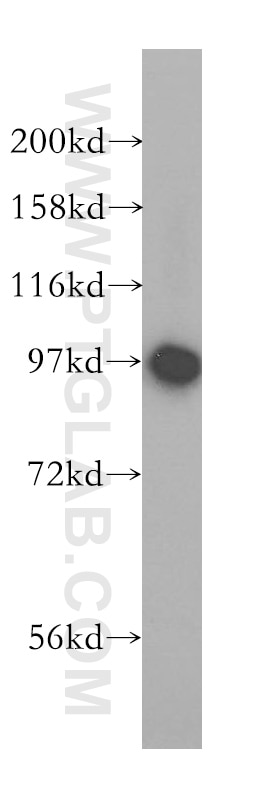- Phare
- Validé par KD/KO
Anticorps Polyclonal de lapin anti-PYGL
PYGL Polyclonal Antibody for WB, IP, IF, IHC, ELISA
Hôte / Isotype
Lapin / IgG
Réactivité testée
Humain, rat, souris et plus (1)
Applications
WB, IHC, IF/ICC, IP, ELISA
Conjugaison
Non conjugué
N° de cat : 15851-1-AP
Synonymes
Galerie de données de validation
Applications testées
| Résultats positifs en WB | cellules HeLa, cellules HepG2, foie de rat, foie de souris |
| Résultats positifs en IP | tissu hépatique de souris |
| Résultats positifs en IHC | tissu rénal humain, tissu cardiaque de souris, tissu testiculaire de souris il est suggéré de démasquer l'antigène avec un tampon de TE buffer pH 9.0; (*) À défaut, 'le démasquage de l'antigène peut être 'effectué avec un tampon citrate pH 6,0. |
| Résultats positifs en IF/ICC | cellules HeLa, |
Dilution recommandée
| Application | Dilution |
|---|---|
| Western Blot (WB) | WB : 1:500-1:3000 |
| Immunoprécipitation (IP) | IP : 0.5-4.0 ug for 1.0-3.0 mg of total protein lysate |
| Immunohistochimie (IHC) | IHC : 1:50-1:500 |
| Immunofluorescence (IF)/ICC | IF/ICC : 1:200-1:800 |
| It is recommended that this reagent should be titrated in each testing system to obtain optimal results. | |
| Sample-dependent, check data in validation data gallery | |
Applications publiées
| KD/KO | See 2 publications below |
| WB | See 32 publications below |
| IHC | See 4 publications below |
| IF | See 2 publications below |
| IP | See 1 publications below |
Informations sur le produit
15851-1-AP cible PYGL dans les applications de WB, IHC, IF/ICC, IP, ELISA et montre une réactivité avec des échantillons Humain, rat, souris
| Réactivité | Humain, rat, souris |
| Réactivité citée | rat, Humain, souris, squirrel |
| Hôte / Isotype | Lapin / IgG |
| Clonalité | Polyclonal |
| Type | Anticorps |
| Immunogène | PYGL Protéine recombinante Ag8664 |
| Nom complet | phosphorylase, glycogen, liver |
| Masse moléculaire calculée | 846 aa, 97 kDa |
| Poids moléculaire observé | 97 kDa |
| Numéro d’acquisition GenBank | BC009895 |
| Symbole du gène | PYGL |
| Identification du gène (NCBI) | 5836 |
| Conjugaison | Non conjugué |
| Forme | Liquide |
| Méthode de purification | Purification par affinité contre l'antigène |
| Tampon de stockage | PBS avec azoture de sodium à 0,02 % et glycérol à 50 % pH 7,3 |
| Conditions de stockage | Stocker à -20°C. Stable pendant un an après l'expédition. L'aliquotage n'est pas nécessaire pour le stockage à -20oC Les 20ul contiennent 0,1% de BSA. |
Protocole
| Product Specific Protocols | |
|---|---|
| WB protocol for PYGL antibody 15851-1-AP | Download protocol |
| IHC protocol for PYGL antibody 15851-1-AP | Download protocol |
| IF protocol for PYGL antibody 15851-1-AP | Download protocol |
| IP protocol for PYGL antibody 15851-1-AP | Download protocol |
| Standard Protocols | |
|---|---|
| Click here to view our Standard Protocols |
Publications
| Species | Application | Title |
|---|---|---|
Nature Targeting SLC7A11 improves efferocytosis by dendritic cells and wound healing in diabetes. | ||
Cell Metab Fibroblasts Mobilize Tumor Cell Glycogen to Promote Proliferation and Metastasis. | ||
Cell Metab Cell-Intrinsic Glycogen Metabolism Supports Early Glycolytic Reprogramming Required for Dendritic Cell Immune Responses. | ||
J Clin Invest Ketohexokinase C blockade ameliorates fructose-induced metabolic dysfunction in fructose-sensitive mice. | ||
Int J Biol Sci PYGL-mediated glucose metabolism reprogramming promotes EMT phenotype and metastasis of pancreatic cancer |
Avis
The reviews below have been submitted by verified Proteintech customers who received an incentive forproviding their feedback.
FH Patricia (Verified Customer) (02-25-2020) | Works very well.
|
